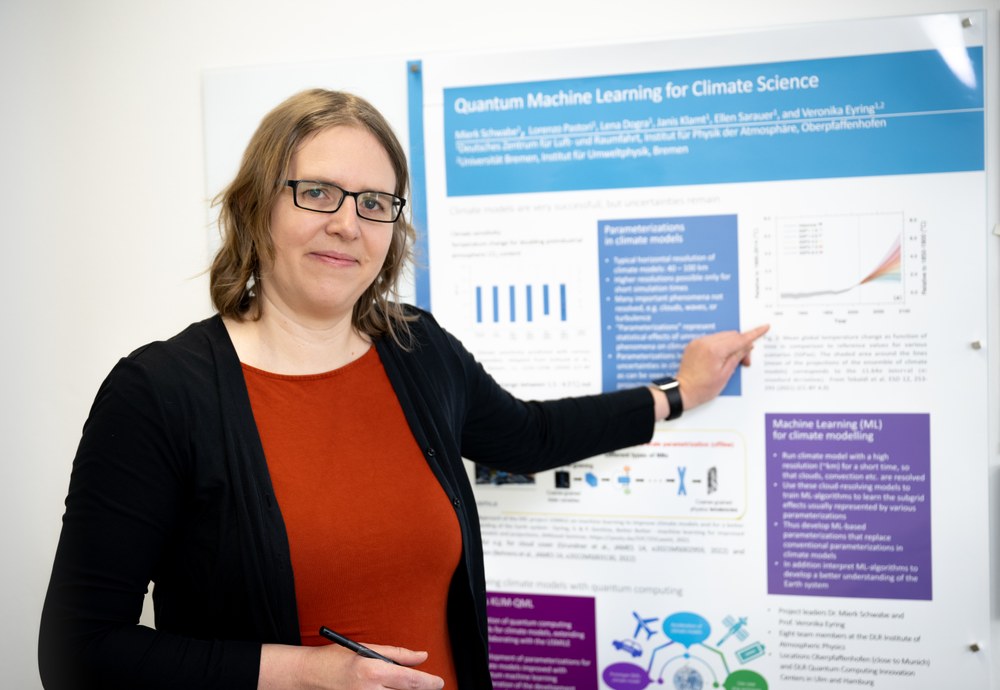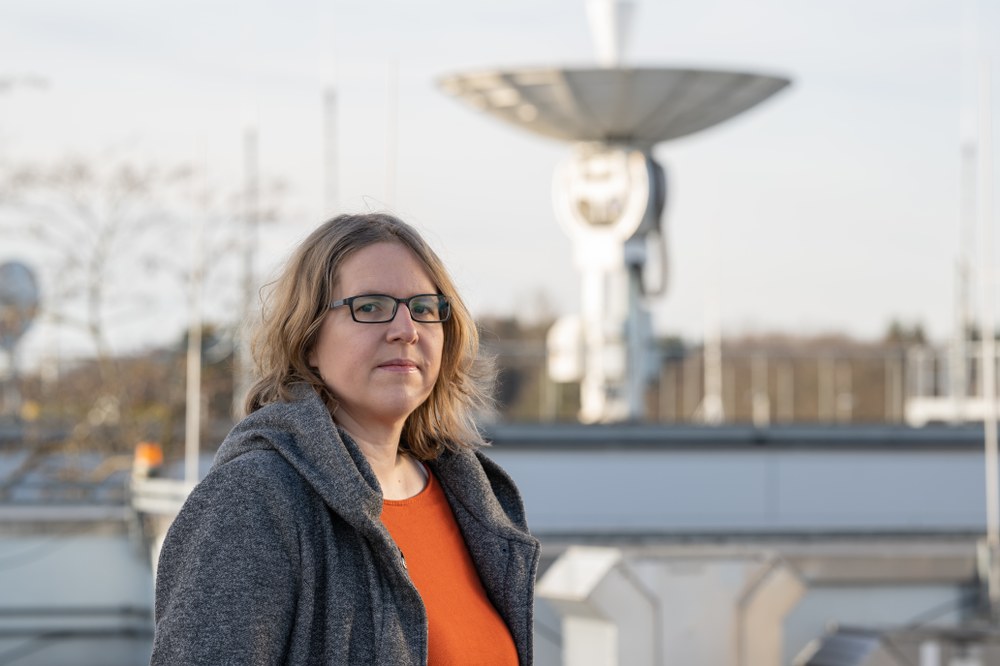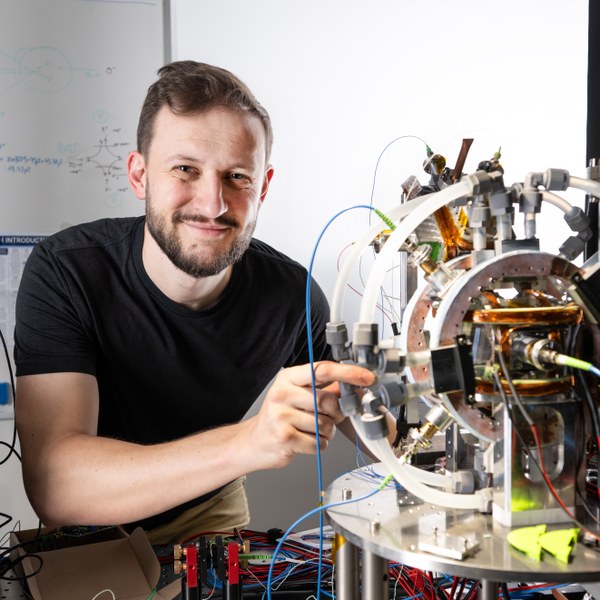Mierk Schwabe
Field of study: Physics
Now: Institute of Atmospheric Physics
Mierk Schwabe holds a doctorate in physics and has been working at the DLR Institute of Atmospheric Physics in Oberpfaffenhofen since 2015.
In this interview, she discusses what she is researching and working on as a group leader in the Earth System Model Evaluation and Analysis department.
Mierk, what do you look forward to when coming to work in the morning?
Mierk: I look forward to interacting with my amazing colleagues, from whom I learn something new every day. And I really enjoy working in an exciting field, understanding new physical relationships and being able to conduct research on a topic as important as climate change and the sustainable development of transport, aeronautics and energy.
What are you researching or working on?
Mierk: We are researching how machine learning and quantum computing can be used to improve climate models. We compare and evaluate the modified climate models with Earth observation data. In this way, we want to contribute to the development of climate models that also enable more accurate regional and local forecasts of the changing climate. These improved climate models can also be used to better assess the impact of various technologies from space, aeronautics, energy and transport. We are currently using supercomputers for this work and also intend to utilise the quantum computers of the DLR Quantum Computing Initiative (DLR QCI) in the coming years.
„Develop climate models that also enable more accurate regional and local forecasts of the changing climate“
What does your typical working day involve?
Mierk: As a group leader and supervisor of doctoral students, I have a lot of meetings that deal with the management of the group, content-related issues or planned applications, for example for computing time. For instance, I might discuss reviews of a submitted paper with a doctoral student, then attend an institute seminar, write a proposal or a paper, and go on to meet the contractors from our project to discuss progress towards the next milestone. I also like to conduct my own research, especially on atmospheric dynamics.

Where and how is your work being used?
More information on Klim-QML
Mierk: The methods for refining and accelerating climate models will be used to develop a version of the German climate model ICON that has been improved using machine and quantum machine learning methods. This climate model could then be used together with conventional climate models, for example, to generate climate simulations for the reports of the Intergovernmental Panel on Climate Change and to provide information for the population and for decision-makers. In our Climate QML project for the DLR Quantum Computing Initiative, we want to use such an extended model to analyse the effects that emissions from shipping have on the atmosphere and climate.
„It’s very fulfilling to discover and develop new things together with the team“
What are the highlights of your work?
Mierk: It is always great to see our ideas put into practice and then to have them published and finally recognised and used by others in the scientific community. It means that our own curiosity is helping to expand people's knowledge and skills, thereby making a difference towards sustainable developments in the world.

What special skills can you make good use of in your job?
Mierk: I have already held a number of different positions in various fields of research and have worked with a wide variety of people and on diverse tasks. This has greatly helped me to familiarise myself with a variety of interdisciplinary issues and to address a wide range of challenges together with my colleagues.
Leave us a final thought.
Mierk: I would particularly like to encourage young girls and women to take an interest in technical and scientific subjects and possibly pursue them as a career. This area offers great prospects for women and discovering and developing new things together with the team is very fulfilling. Given the enormous challenges we are facing, we need all the creative and motivated minds we can get.




